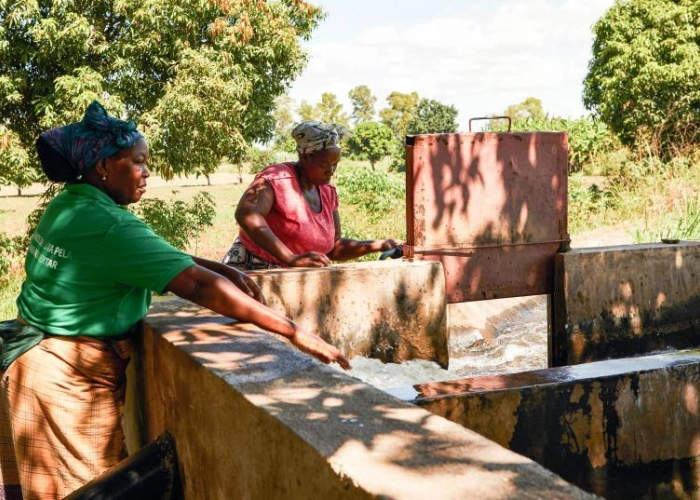Transforming Smallholder Irrigation into Profitable and Self-sustaining Systems in Southern Africa

Adapted from the project website
This project aimed to improve the sustainability and profitability of smallholder irrigated agriculture across 3 nations in southern Africa.
Across Africa, governments and donors are investing in a massive expansion of irrigated agriculture, assuming this will reduce poverty for smallholder farmers and increase food security. Yet existing smallholder irrigation schemes on the continent have largely failed to significantly reduce farmer poverty, use the land and water sustainably or maintain the irrigation infrastructure. There is a complex array of reasons, ranging from farmers’ skills and markets to dysfunctional institutions.
ACIAR project (FSC/2013/006) Increasing irrigation water productivity in Mozambique, Tanzania and Zimbabwe through on-farm monitoring, adaptive management and agricultural innovation platforms (AIPs), found that AIPs combined with soil moisture and solute measuring and monitoring substantially increase the productivity and incomes of farmers and make irrigation schemes more self-sustaining.
The research explored how to expand successful interventions using user-friendly water monitoring tools and Agricultural Innovation Platforms (AIPs) in irrigation to reach more schemes and levels of governance. This was achieved by strengthening the skills of farmers, government, and private sector organisations.
- Established 12 district-level Agricultural Innovation Platforms (AIPs), engaging 41 schemes, surpassing the target of 5 AIPs and 38 schemes.
- Installed 930 sets of sensors, with 754 farmers trained in their use, surpassing the target.
- Trained 276 government officers as AIP facilitators.
- Scaled out from existing AIPs in all countries, with low-cost means identified to extend AIP benefits at scheme scale.
- Held national-level innovation meetings in Tanzania and Zimbabwe to identify low-cost means of scaling out AIP benefits.
- Explored several strategic partnerships in 3 countries and internationally for irrigation funding.
- Identified various methods for using Chameleon and associated data to improve irrigation management at different scales, including national database integration and pilot deployments in provinces.
- Trained government agency staff in Mozambique, Tanzania, and Zimbabwe to map farm plots, with guidelines developed and scheme maps produced across the 3 countries.
- Published guides to better irrigation practices in English and translated into Portuguese and Swahili, with plans to share them further with stakeholders.
- Produced videos showcasing project activities in all countries, covering tool usage, project overview, and local cooking practices.